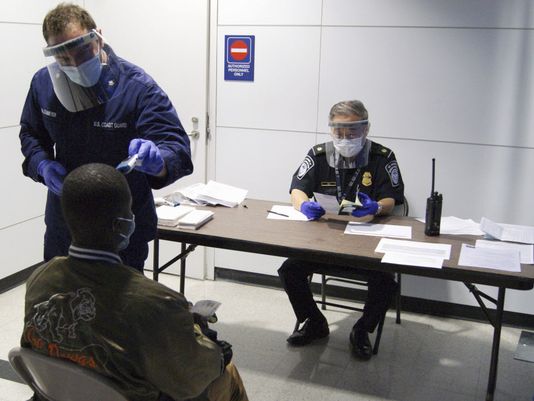USA TODAY Oct. 21, 2914By Bart Jansen
WASHINGTON — The Department of Homeland Security announced Tuesday that all travelers from Ebola outbreak countries in West Africa will be funneled through one of five U.S. airports with enhanced screening starting Wednesday.
 (Photo: Melissa Maraj, AP)
(Photo: Melissa Maraj, AP)
Customs and Border Protection within the department began enhanced screening — checking the traveler's temperature and asking about possible exposure to Ebola — at New York's John F. Kennedy International Airport on Oct. 11.
Enhanced screening for travelers from Liberia, Sierra Leone and Guinea was expanded Oct. 16 to Washington's Dulles, Chicago's O'Hare, New Jersey's Newark and Atlanta's Hartsfield-Jackson international airports.
Those airports were supposed to screen 94% of the average 150 people per day arriving from the three countries. But lawmakers from other states asked for enhanced screening at their airports, too.
Recent Comments